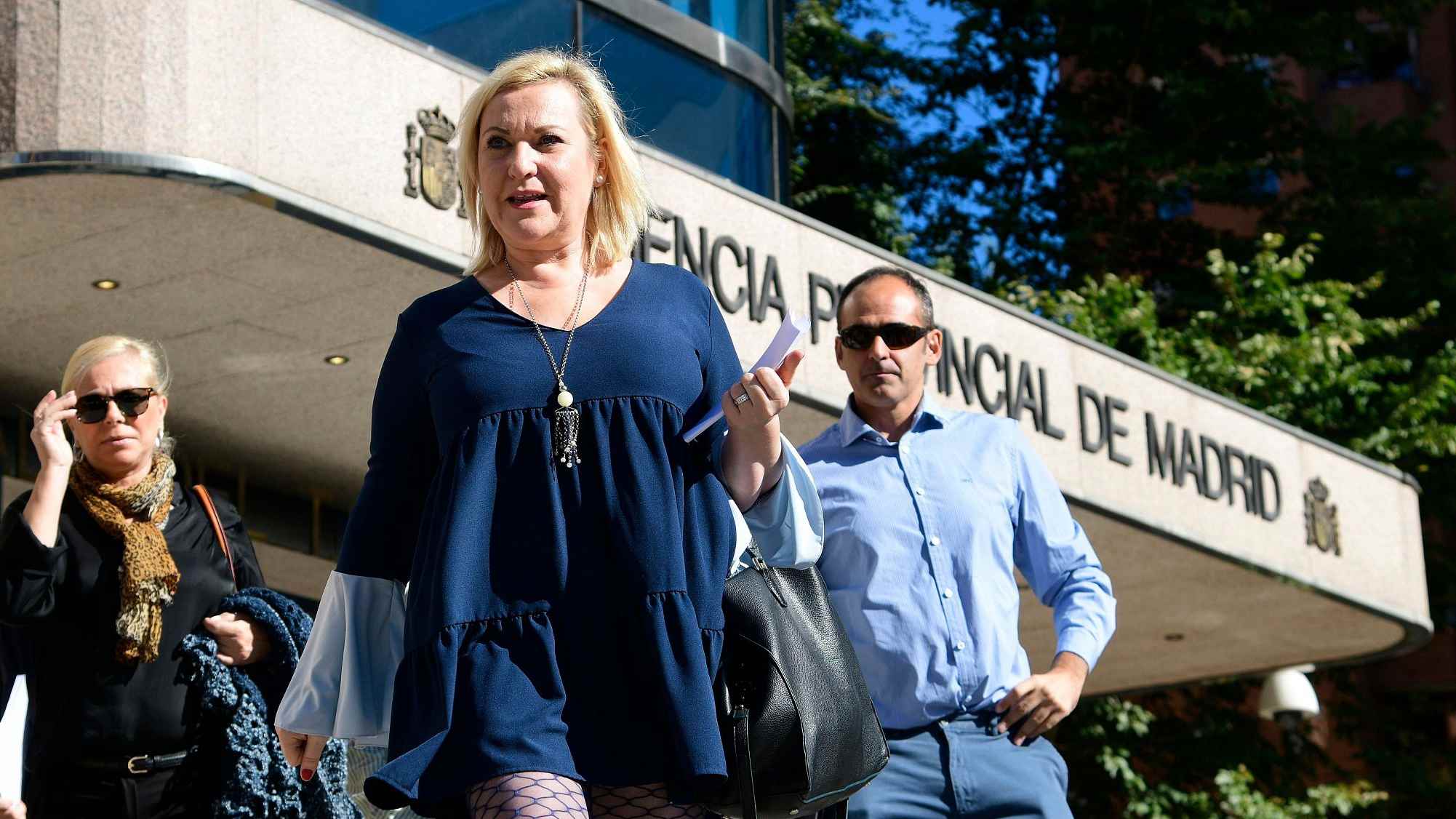
(Photo: CGTN)
In the hours leading up to the verdict on October 8 in Spain's first case of "stolen babies" to go to trial, an increasing number of reporters and camera operators crowded onto the front steps of the Seventh Section of the Madrid Provincial Court, on a quiet street in the northern part of the Spanish capital.
As the result of the trial, the defendant, an elderly Spanish doctor escaped the punishment.
Just before 11:00 a.m. local time, one of the main protagonists in the case appeared.
The woman who brought the lawsuit, Ines Madridgal, 49, said she was stolen at birth from her mother and given to another family. But the defendant, retired doctor Eduardo Vela, 85, did not appear, nor did his lawyer.
And the court did not require their presence. The verdict was not read aloud with all the parties in the courtroom.
Instead, the panel of three judges issued the written ruling to the parties who were present, and then sent it to the defendant.
Madrigal stepped outside and told reporters she received the sentence with a set of mixed emotions. The judges acquitted Vela on the key charges against him because the statute of limitations on these crimes had expired.
Madrigal said she didn't know until 2010 that there was a network of baby thefts in Spain that had started under the long dictatorship of Francisco Franco, and carried on even after his death in 1975.
But the court, citing the statute of limitations, indicated that Madrigal would have needed to have filed suit within 10 years after reaching the age of 18 in 1987 – that is, by around 2007.
By contrast, she presented her lawsuit against Vela five years later, in April of 2012. But while acquitting Vela, the court also ruled – according to a statement from the court issued to the media – that "the judges considered the defendant the author (Vela) of the three crimes for which he was tried." Those crimes were participating in the abduction of the baby who would later become Ines Madrigal, and then falsifying documents to cover up the crime.
The court said Vela, a gynecologist in 1969 and director of a now-closed hospital, "delivered to the married couple of Ines Perez Perez and Pablo Madrigal Revilla a baby girl just a few days old, outside of legal channels, simulating the existence of a birth that had not occurred and establishing a false paternity" between the baby and the couple.
"And all of that," the court ruled, "without any record that the biological parents of the baby neither gave their consent nor were even informed."
Madrigal later told reporters outside the court, "It's the first sentence we have on the stolen babies which recognizes that there was a theft, that they took me from my real mother. But we're not in agreement with the other part, the acquittal of Eduardo Vela."
Madrigal works with Spain's Stolen Babies association that estimates thousands of babies were stolen shortly after birth from their leftist mothers – or other mothers who were also deemed undesirable – during and after the right-wing dictatorship of Francisco Franco.
The babies were then given or even sold to conservative, pro-regime families. Madrigal said she plans to appeal to the Supreme Court.
Her lawyer, Guilllermo Peña said their arguments would include asking the high court to consider how someone who isn't even aware they're a victim of a crime, such as Ines Madrigal and the issue of stolen babies, could be subject to a statute of limitations requirement to file a legal complaint by a certain date, and if not, that the defendant would automatically have to be acquitted under the law.
There was no immediate public reaction to the sentence from Vela or his lawyer. But Spain continues to debate and pay close attention to the darker practices of the Franco regime, such as the cases of the stolen babies.


